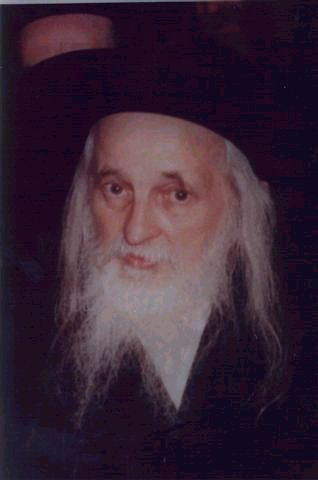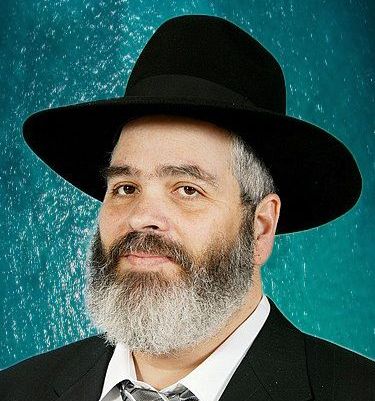  |
|
| |||||
This Google Custom Search looks only in this website. HaRav Yehoshua Eichenstein Has Interesting Analysis and Advice about Chinuch
Part 2
We continue with further questions that were asked of HaRav Eichenstein.
At what hour should children be awoken in the morning during bein hazmanim? The first target time for Krias Shema or the second one? How much must one make a big issue/fight over it?
There are some avreichim who toil in Torah with all their might and truly use their time to its best advantage. They deliberate about how much time they should invest in the home and family. Are there fast rules in determining this, especially during bein hazmanim? How much time must a father devote to studying with his sons at the expense of his own study time?
The Admor of Satmar was not merely a Rebbe. He was a concept. There were Jewish leaders who did not like him. He knew this. But his signpost in life was "truth." Under his leadership, "Satmar" was a synonym for a Torah empire. He established charitable institutions. His philanthropy became well-known. His opposition to Zionism was uncompromising. But above all, he was a giant in Torah—a true giant. He derived his firmness from the Torah which he studied day and night. It instilled him with the strength to act. He was a Hungarian scholar, yet he knew how to capture the hearts and minds of the students of Telshe.
Part I
A newspaper is not a suitable forum for portraying the heights and the depths of the personality, the Torah and the activities of the saintly gaon, the Rebbe of Satmar, zt'l. Even a book, which from a technical standpoint can encompass broad topics, is too limited an arena for this subject. Scores of Yiddish and English books, pamphlets and publications about the life and the works of the Rebbe have seen the light of day. Editions have been sold out, and new ones have appeared in their stead. Israeli and American publishers have contributed to the effort to memorialize the Rebbe. Yet the gap has not been filled. The major part of his remarkable image still remains hidden.
We, in our limited framework, cannot presume to do justice to his multifaceted image. That task is far too immense for us. But neither can we fail to recall him. Nor can we remain silent as his fifteenth yahrtzeit approaches. Instead, we feel obligated to focus on the central aspects of his personality: his exertion in Torah, and his penetration of her depths.
The incident we are about to describe took place in 5706 (1946), in Yerushalayim. The Admor of Satmar, who had arrived in Karta deshufraya, was about to visit one of his close acquaintances—R' Meir Eichler — who had fallen ill.
The Israel law of succession was passed many years ago as part of the Foundational Law: The Government. The law says that if the prime minister is temporarily unable to fulfill his obligations, the deputy prime minister will take over. If 100 consecutive days pass during which the deputy prime minister officiates and the prime minister does not return to his duties, he will be seen as someone who is permanently unable to discharge his duties, and the entire government will be considered to have resigned until a new government is formed.
Those who wrote and passed the law, like all flesh and blood that cannot foresee all the consequences of a law, left a lacuna that is critical. It was clear to everyone involved in passing the law what was meant by "unable to fulfill his duties." A prime minister who is unable to continue in his position due to health problems — physical or emotional — like Menachem Begin or Ariel Sharon for their respective reasons, is certainly considered to have become disabled. It never occurred to anyone that a government official could get up and declare a prime minister to be disabled for any reason. As long as he has not been convicted of a crime, he should continue to serve as prime minister.
No one disputes that the dry text of the law does not deal with the sort of "essential" disability like they are trying to impute to Netanyahu because of his so-called conflict of interest with regard to his legal position and the judicial reform.
* * *
Outstanding Articles From Our Archives
Opinion & Comment
by HaRav Yitzchok Scheiner
I would like to present the school of thought maintained by Maran, Rabbon shel Yisroel, R' Boruch Ber ztvk'l regarding Torah study which, I believe, all other approaches accept and acknowledge.
It is told of two gatherings that took place regarding reinforcing the study of Torah, in which Maran participated. At one of them, the speaker dwelled on two possible ways in life: one the Torah way and the other, life without Torah. He expanded at length on the happiness which the Torah way provides in this world and the next, and the misery and unhappiness of life sans Torah, both in this world and the next.
Maran spoke after him and said that Chazal taught otherwise; there are not two ways. The path without Torah leads to certain downfall into the abyss, and to sure death. Can then, this way be called a path in life? Rather, there is only one way, no other - the one which leads to real life.
At a second meeting, one speaker compared Torah to the air we breathe, oxygen for the soul. One cannot live without oxygen. It seemed that this message should have found favor in Maran's eyes, but not so. When it was his turn, he rose and objected vehemently, saying that Torah was not oxygen, it was not air which is necessary for life. Torah, he stated emphatically, is life itself!
Opinion & Comment
by HaRav Dovid Povarsky zt'l
Precisely those who toiled - they are the ones who can see the situation in its proper perspective and to see that there really is reason to be fearsome and alarmed. We are dealing with the cleansing of the intellect and the soul! A decontamination from all the pollution of the body. Once a person has purified himself during the days of Elul, his mind is more lucid and his thought processes are more coherent; subsequently, his vision is also more spiritual. This is why we are afraid of the Day of Judgment.
There are two components to the avodoh of Elul days: the active, physical aspect like blowing the shofar after shacharis every morning and the addition of Mizmor leDovid Hashem Ori. In yeshivos, they also add a slot for the study of mussar before minchah. Everyone keeps these in practice.
The second part is the self introspection - delving inside one's soul and making the necessary resolutions for improvement, for purification, for cleansing of the dirt and the impurities that cling to us through our sins. For the days of Elul are a preparation for the Days of Judgment when all creations will be reviewed for life or death. How can we possibly enter the period of judgment with filth adhering to us? We must somehow purify and prepare ourselves.
|
|||||




.jpg)


